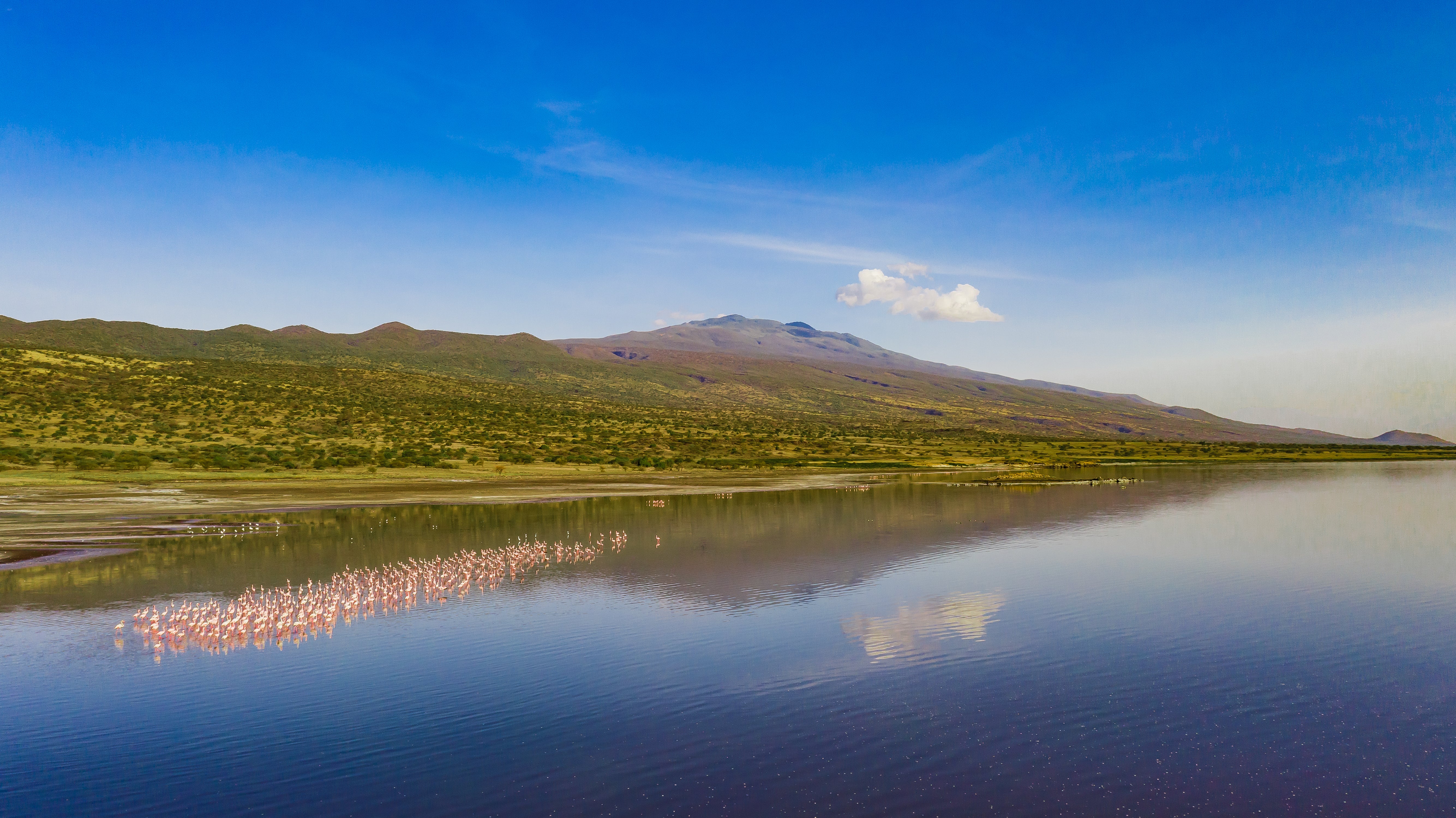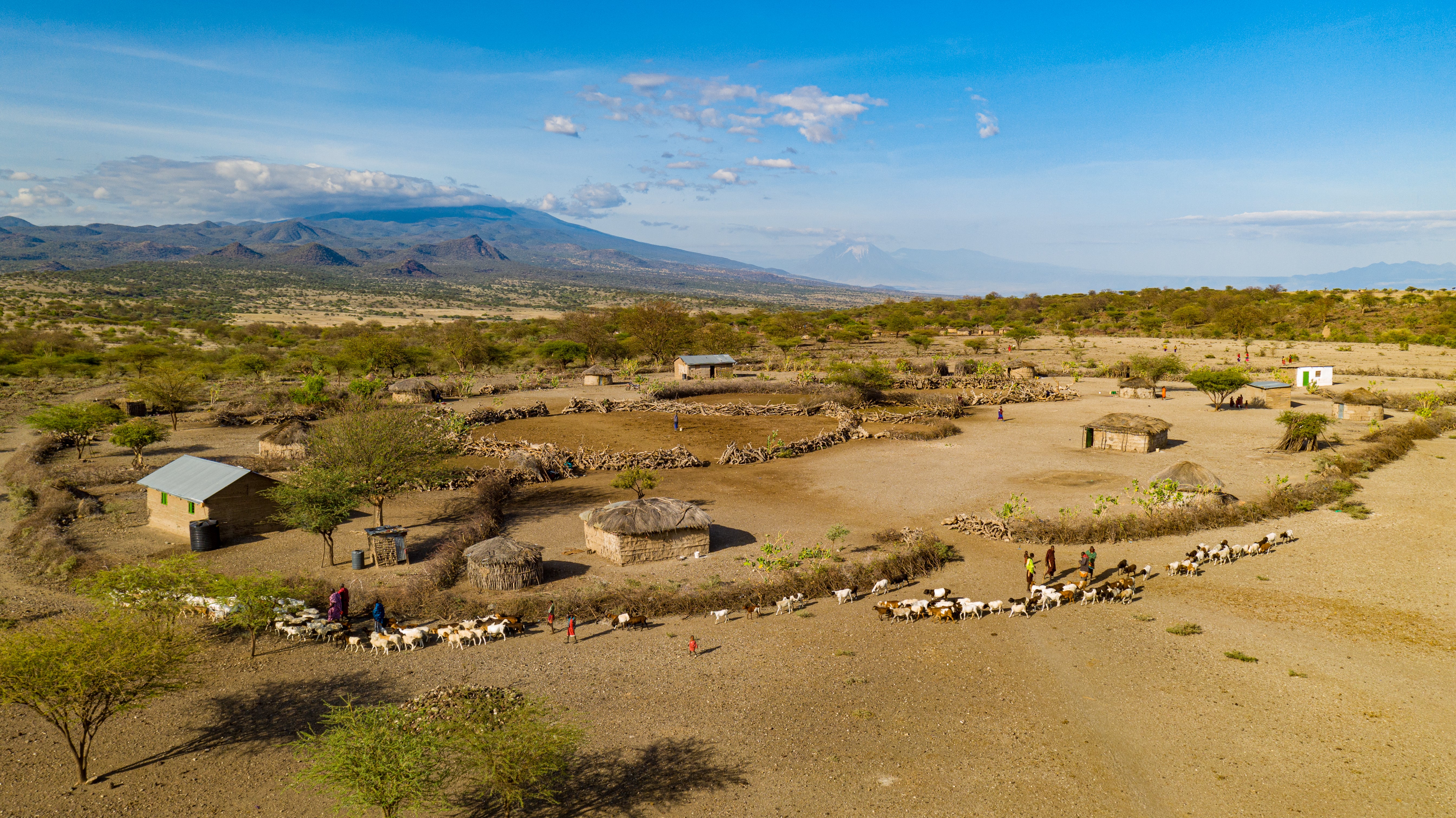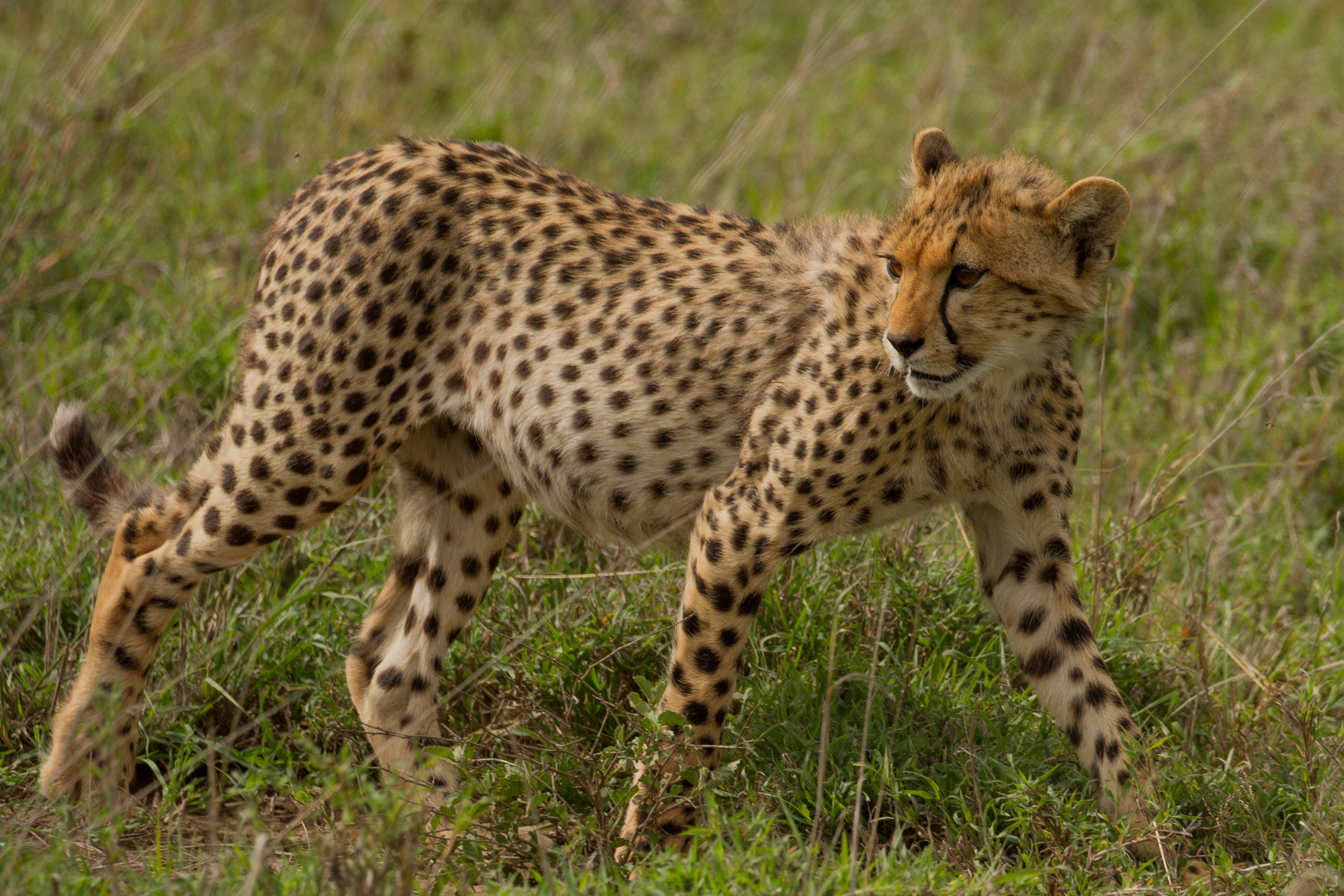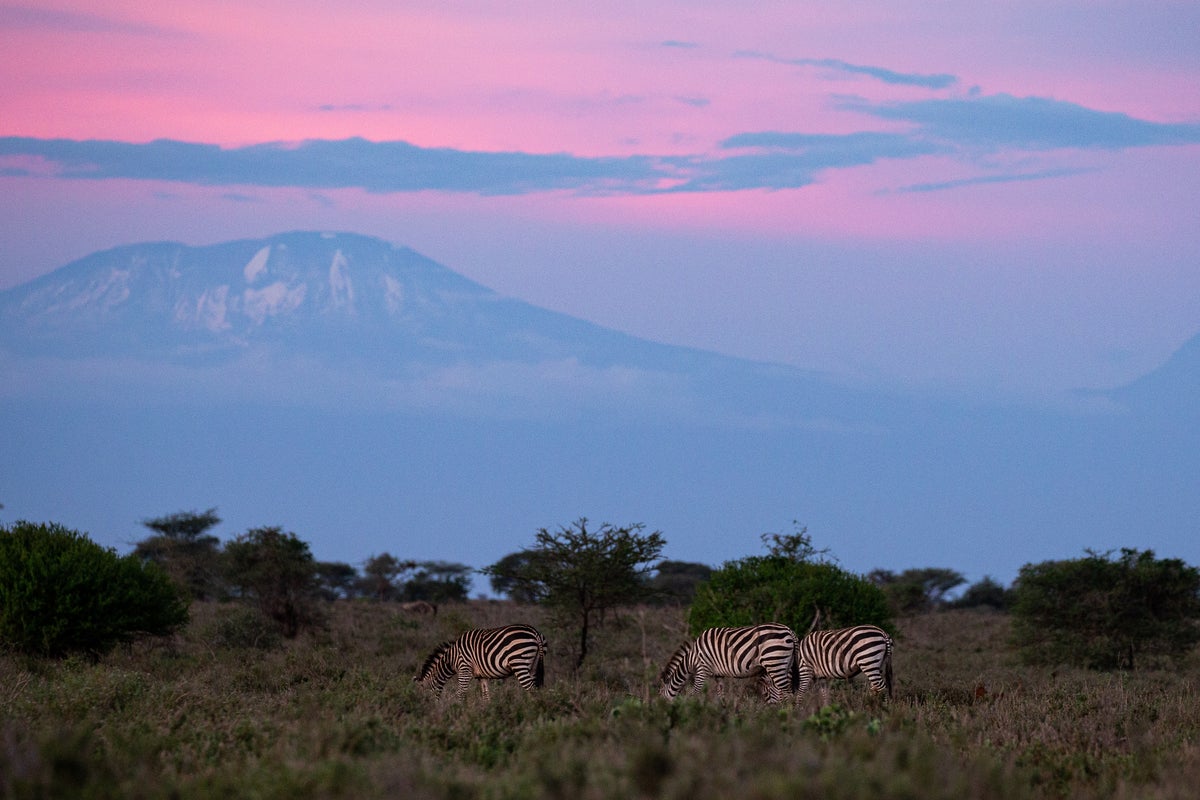UK conservation charities key to protecting wildlife around the world have warned that the government’s slashing of the international aid budget will have a dramatic impact – severely damaging a lifeline for fragile ecosystems as costs and cut and leaving many organisations fearing for the future.
With the UK cutting its overall foreign aid budget from 0.5 per cent to 0.3 per cent of Gross National Income (GNI), data shows support for nature and conservation is set to receive a particularly stark hit worth hundreds of millions of pounds. While the government has said it is committed to protecting nature and battling the climate crisis, The Independent has uncovered evidence that cuts are already having a devastating blow on conservation programmes.
One organisation is the African People and Wildlife (APW) charity, which carries out conservation work in Tanzania. The charity has two projects running this year that were “generously funded” by UK aid, according to Laly Lichtenfeld, co-founder of APW.
The first of these projects supports conservation activities on Lake Natron, which is a critical ecosystem home to vast flamingo breeding grounds, where APW carries out activities such as grassland restoration and sustainable grazing support in order to help people live in balance with the landscape and to adapt to the changing climate. The second project is about providing practical tools for people to manage human-wildlife conflict, particularly in relation to elephants and large carnivores.
Funding for the Lake Natron project came to a close at the end of June 2025, while the second project is due to run out later this year. Both were funded by the UK government-backed £10.6 million Darwin Initiative, which has supported some 52 projects globally. However, it is not currently open for new funding rounds due to uncertainty around funding. Being left with a gap in funding that might not be replenished, says Lichtenfeld, is highly damaging for APW’s work.
“When aid cuts like we are experiencing happen, you’re not just dismantling a given project. You’re dismantling an entire ecosystem of support for both wildlife and a huge number of African communities,” says Lichtenfeld.
Grants that the charity now expects to come in this year are “probably about 50 per cent less than last year”, Lichtenfeld continues, and the charity is planning to make some major cuts to activities on the ground. “We’re doing everything we can to keep the bare bones of projects going, to keep relationships alive and show the communities they have not been forgotten,” she adds.


‘World-class science’
Matthew Gould, CEO of major conservation group the Zoological Society of London (ZSL), tells The Independent that expected cuts to wildlife and conservation will be highly damaging for both the natural world, and the humans that depend upon it.
“Given that over half of global GDP depends on healthy ecosystems, cutting UK aid for nature would be a false economy,” he says. “The return on investment in nature is high, but the cost of not investing is higher.”
ZSL projects that that have received UK government funding include The Rhino Impact Investment Project, led to the creation the landmark ‘Rhino Bond’, which is a $150m investment product that enables wealthy investors to directly invest to boost numbers of critically endangered rhinos, while also providing significant local employment in conservation. Another ZSL project is the development of SPOTT, which tracks the environmental pledges of companies producing items which can drive deforestation. Now, more than 50 per cent of palm oil products traded globally now SPOTT-assessed.
Gould was among a number of twelve UK conservation leaders – also including the CEOs of WWF, Greenpeace, and Conservation International – who recently wrote to the UK government suggesting that cuts to conservation would be “a massive own goal”.
“Investment in nature is a strategic, cost-effective pillar of Britain’s global development agenda… UK nature programmes deliver extraordinary returns on modest investment,” they wrote in the letter, which has been shared exclusively with The Independent.
.jpeg)
.jpg)
Bird charity the RSPB is another organisation concerned about the impact of UK aid cuts. The charity uses money from the UK aid budget to support its conservation activities in British Overseas Territories like St Helena and South Georgia, which contain some of the world’s rarest seabirds, as well as several penguin colonies.
“The Foreign, Commonwealth and Development Office (FCDO) UK aid budget has been a lifeline for some of the world’s most fragile ecosystems, helping to halt extinctions and breathe new life into habitats,” says Katie-jo Luxton, RSPB executive director of global conservation.
UK aid funding allows charities like the RSPB to “blend world-class science with deep local knowledge”, says Luxton, ensuring that the UK plays a key role in both protecting wildlife and supporting communities.
“With funding cuts looming and transparency scarce, we’re deeply concerned that conservation efforts could be sidelined,” Luxton adds. “If the UK is serious about its global leadership on climate and nature, sustained investment in nature and climate must remain front and centre.”
When Keir Starmer announced the UK aid cuts, he suggested that Sudan, Ukraine, Gaza, global health, and nature and climate would be the key areas that the UK would continue to support. And though it did not reveal an any details on conservation or nature specifically, July’s FCDO annual report showed that the department is set to increase climate and nature spending from £414m in 2024/5 to £658m in 2025/6.
But information received by Ian Mitchell at the Centre for Global Development via Freedom of Information (FOI) request reveals a more complicated story.
The FOI shows that between 2021 and 2024, some 35 per cent of funding for nature-focused aid programmes was distributed by two other government departments: the Department for Environment, Food and Forestry (DEFRA) – at £173m – as well as from the Department for Energy Security and Net Zero (DESNZ), which provided £304m.
The FOI also contains spending forecasts for the amount of aid that different government departments are set to spend, revealing that between the financial years of 2025/26 and 2026/7 – which is the financial year that UK aid spend is set to hit 0.3 per cent – DEFRA’s foreign aid is set to be cut by 45.2 per cent, down to £247m, while DESNZ’s aid is set to fall by 58.1 per cent to £115m.
The cuts projected for these two departments are much steeper than the cuts FCDO is to carry out over the same period – and given that a much larger share of those two departments’ aid is spent on nature than is the case for FCDO, it implies a particularly dramatic funding hit for nature and conservation, according to Mitchell.
“These falls to DESNEZ and DEFRA’s aid budget are steeper than the circa 30 per cent cut to the FCDO over the same period,” says Mitchell. “This is a relative de-prioritisation of those departments’ international spend and will mean reduced efforts on international biodiversity and conservation.”
A government spokesperson told The Independent: “This government remains committed to providing International Climate Finance now and in the future and to playing our part, alongside other developed countries and finance providers, to deliver our international commitments.”
The spokesperson added that the UK still intends to deliver its ambition of delivering £11.6bn in climate finance for developing countries between April 2021 and March 2026, which was first made by Boris Johnson at COP26 in August in 2021.
‘A difficult few years’
Anouska Perram, the interim coordinator at a conservation charity called the Forest Peoples Programme (FPP), which receives UK aid funding for a forestry project across both the Democratic Republic of Congo and Republic of Congo. Specifically, FPP works to try and reverse environmental degradation in remote forest areas, by encouraging sustainable forest management traditions among indigenous communities, and also by lobbying for policy reforms to support their territorial rights.

“We are not, strictly speaking, a conservation organisation – we are a human rights organisation. But supporting community-led conservation helps achieve both human rights and conservation objectives,” she says.
FPP has been working with some communities in the Congo for more than 30 years – but Perram is now very worried about the future.
“The FCDO-supported project is due to expire next year, and we are aware that the funding outlook for us and other organisations looks very bad going forward,” she says. “With both the UK and other bilateral organisations, it’s very clear that support for nature and climate is likely to decrease in the future.”
For now, all conservation organisations such as APW and FPP can do is reduce costs where they can, apply for new funding, and hope for the best.
“I think it’s definitely going to be a difficult few years. There’s no question about it,” says Lichtenfeld. “We have a tremendously dedicated team, and we will do all we can to keep the work moving.”
This article is part of The Independent’s Rethinking Global Aid project


